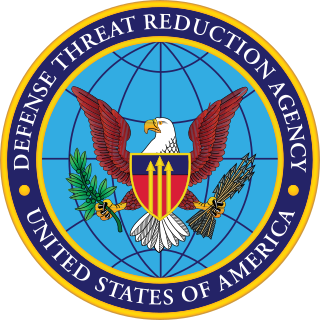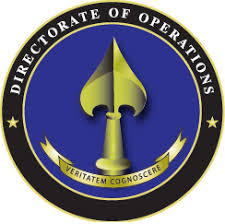Related Research Articles

Clarence Saxby Chambliss is an American politician who was a United States Senator from Georgia from 2003 to 2015. A member of the Republican Party, he previously served as a U.S. Representative from 1995 to 2003.

Robert Terry Everett is an American politician and a Republican former member of the United States House of Representatives from Alabama's 2nd congressional district. He served from 1993 to his retirement in 2009. Everett was born on February 15, 1937, in Dothan, Alabama, the son of Bob and Thelma Everett. He lived and attended school in Midland City, Alabama.

Jefferson Bingham Miller is an American politician who served as the U.S. Representative for Florida's 1st congressional district from 2001 to 2017. A member of the Republican Party, his district includes all of Escambia County, Santa Rosa County, Okaloosa County, Walton County, Holmes County and Washington County.

The U.S. House Committee on Armed Services, commonly known as the House Armed Services Committee or HASC, is a standing committee of the United States House of Representatives. It is responsible for funding and oversight of the Department of Defense (DoD) and the United States Armed Forces, as well as substantial portions of the Department of Energy.

The Homeland Security Act (HSA) of 2002, was introduced in the aftermath of the September 11 attacks and subsequent mailings of anthrax spores. The HSA was cosponsored by 118 members of Congress. The act passed the U.S. Senate by a vote of 90-9, with one Senator not voting. It was signed into law by President George W. Bush in November 2002.

The Defense Threat Reduction Agency (DTRA) is an agency within the United States Department of Defense (DoD) and is the official Combat Support Agency for countering weapons of mass destruction. According to the agency's Strategic Plan for Fiscal Years 2018 to 2022, the DTRA mission "enables DoD and the U.S. Government to prepare for and combat weapons of mass destruction and improvised threats and to ensure nuclear deterrence." The agency is headquartered in Fort Belvoir, Virginia.
The National Military Strategy (NMS) is issued by the Chairman of the Joint Chiefs of Staff as a deliverable to the Secretary of Defense briefly outlining the strategic aims of the armed services. The NMS's chief source of guidance is the National Security Strategy document.

The Directorate of Operations (DO), less formally called the Clandestine Service, is one of the smallest components of the US Central Intelligence Agency. It was known as the Directorate of Plans from 1951 to 1973; as the Directorate of Operations from 1973 to 2005; and as the National Clandestine Service (NCS) from 2005 to 2015.

The United States Under Secretary of Defense for Policy (USDP) is a high level civilian official in the United States Department of Defense. The Under Secretary of Defense for Policy is the principal staff assistant and adviser to both the Secretary of Defense and the Deputy Secretary of Defense for all matters concerning the formation of national security and defense policy.
The Australian Intelligence Community (AIC) and the National Intelligence Community (NIC) or National Security Community of the Australian Government are the collectives of statutory intelligence agencies, policy departments, and other government agencies concerned with protecting and advancing the national security and national interests of the Commonwealth of Australia. The intelligence and security agencies of the Australian Government have evolved since the Second World War and the Cold War and saw transformation and expansion during the Global War on Terrorism with military deployments in Afghanistan, Iraq and against ISIS in Syria. Key international and national security issues for the Australian Intelligence Community include terrorism and violent extremism, cybersecurity, transnational crime, the rise of China, and Pacific regional security.
The Senate Armed Services Subcommittee on Emerging Threats and Capabilities is one of seven subcommittees within the Senate Armed Services Committee.
The counter-terrorism page primarily deals with special police or military organizations that carry out arrest or direct combat with terrorists. This page deals with the other aspects of counter-terrorism:

The Joint Improvised-Threat Defeat Organization (JIDO) was a combat support organization of the U.S. Department of Defense (DoD) organization under the Defense Threat Reduction Agency (DTRA) that deals with improvised threats such as the improvised explosive device (IEDs) and small unmanned aerial systems (sUASs). JIDO was born from the Joint IED Defeat Organization (JIEDDO) established in 2006, which focused on IEDs. JIDO's mission is to "enable Department of Defense actions to counter improvised threats with tactical responsiveness and anticipatory acquisition in support of combatant commanders' efforts to prepare for, and adapt to, battlefield surprise." This mission supports counter-terrorism, counter-insurgency and other related mission areas including Counter-IED.
Proactive cyber defence means acting in anticipation to oppose an attack involving computers and networks. It represents the thermocline between purely offensive and defensive action; interdicting and disrupting an attack or a threat's preparation to attack, either pre-emptively or in self-defence. The mission of the pre-emptive proactive operations is to conduct aggressive interdiction and disruption activities against an adversary using: Psychological operations, Managed Information Dissemination, Precision Targeting, Information Warfare Operations and computer network exploitation and other active threat reduction measures. The proactive defense strategy is meant to improves information collection by stimulating reactions of the threat agents, provide strike options and to enhance operational preparation of the real or virtual battlespace. A measure for detecting or obtaining information as to a cyber attack, or impending cyber operation or for determining the origin of an operation that involves launching a pre-emptive, preventive, or cyber counter-operation against the source. Proactive cyber defence operations pre-emptively engage the adversary

The U.S. Marine Corps Forces Cyberspace Command is a functional formation of the United States Marine Corps to protect critical infrastructure from cyberattack. Marine Corps Forces Cyberspace Command is the Marine Corps component to U.S. Cyber Command. It comprises a command element, the Marine Corps Cyber Operations Group, and the Marine Corps Cyber Warfare Group, a total of approximately 800 personnel. MARFORCYBER was established on January 21, 2010 under the command of LtGen George J. Flynn,. As of 3 July 2018, MGen Matthew Glavy is in command.

Brett P. Giroir is an American pediatrician and a former four-star admiral in the U.S. Public Health Service Commissioned Corps. He last served as the 16th Assistant Secretary for Health under the Trump administration from February 15, 2018 to January 19, 2021. He concurrently served as the Secretary's principal public health and science adviser, the senior adviser for the Health Resources and Services Administration, the Centers for Disease Control and Prevention, and the Substance Abuse and Mental Health Services Administration as well as the Senior Adviser to the Secretary for Opioid Policy. From 2020 to 2021, he served additionally as the director of the U.S. coronavirus diagnostic testing, and as the U.S. representative on the World Health Organization Executive Board.

The Networking and Information Technology Research and Development (NITRD) program consists of a group of U.S. federal agencies to research and develop information technology (IT) capabilities to empower Federal missions; support U.S. science, engineering, and technology leadership; and bolster U.S. economic competitiveness.

The Carl Levin and Howard P. "Buck" McKeon National Defense Authorization Act for Fiscal Year 2015 was a National Defense Authorization Act. According to the House Armed Services Committee, which oversaw the legislation, the bill would be "the comprehensive legislation to authorize the budget authority of the Department of Defense and the national security programs of the Department of Energy." The total appropriations that are authorized amount to approximately $600 billion for fiscal year 2015.

The Shallow Water Combat Submersible (SWCS) is a manned submersible and a type of swimmer delivery vehicle that is planned to be used to deliver United States Navy SEALs and their equipment for special operations missions. It will replace the current Mark 8 SEAL Delivery Vehicle. The Navy planned to introduce the SWCS in 2018, although "slippage in the development" has delayed its introduction until 2019. As of October 2018, two subs have been delivered to the Navy while another two were in production. The SWCS will serve alongside the Dry Combat Submersible (DCS), a midget submarine with a dry interior being developed by Lockheed Martin as a replacement for the cancelled Advanced SEAL Delivery System (ASDS).
Adara Networks is an American software company.
References
- ↑ "Rules of the Committee on Armed Services: 112th Congress" (PDF). January 20, 2011. Retrieved 2011-01-23.
| | This United States Congress–related article is a stub. You can help Wikipedia by expanding it. |